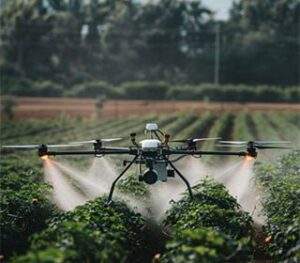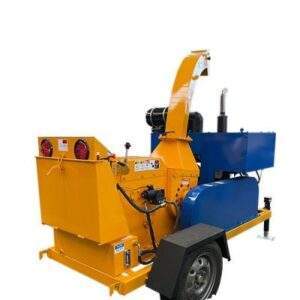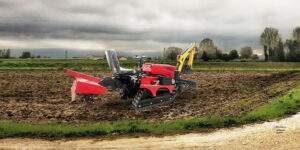How a Mini Tractor for Farming Can Transform Your Small Farm Operations
Introduction
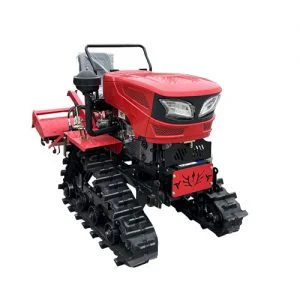
In recent years, the agricultural landscape has seen a significant shift, particularly among small-scale farmers seeking more efficient and effective ways to manage their operations. One of the most transformative tools available is the mini tractor for farming. These compact machines are specifically designed to meet the unique needs of small farms, offering numerous benefits that can revolutionize how agricultural tasks are performed. This blog will explore how a mini tractor can enhance your farming experience, from improving operational efficiency to increasing productivity and sustainability on your small farm.
What is a Mini Tractor for Farming?
A mini tractor for farming is a compact, versatile piece of agricultural machinery that can perform a wide array of tasks suitable for small farms. Unlike traditional tractors, mini tractors are designed to be smaller, lighter, and more maneuverable. This makes them ideal for navigating tight spaces, diverse terrains, and smaller fields, which are common on small farms. Equipped with various attachments, mini tractors can handle everything from plowing and tilling to transporting materials and mowing, making them an indispensable tool for small-scale agricultural operations.
Key Features of Mini Tractors
| Feature | Description |
|---|---|
| Size | Compact design suitable for small farms |
| Power | Typically ranges from 15 to 50 horsepower |
| Attachments | Compatible with various implements (plows, mowers) |
| Fuel Efficiency | Generally more fuel-efficient than larger tractors |
| Maneuverability | Easy to navigate in narrow spaces |
Mini tractors often come equipped with advanced features such as hydrostatic transmissions, power steering, and comfortable seating, enhancing user experience and operational ease. Many models also include safety features that ensure operator protection, further enhancing their appeal for small farmers.
Benefits of Using a Mini Tractor for Farming
Increased Efficiency
One of the most significant advantages of using a mini tractor for farming is the substantial increase in operational efficiency. With the ability to perform multiple tasks quickly and effectively, mini tractors help farmers save valuable time. For instance, tasks such as tilling soil and preparing fields for planting can be completed in a fraction of the time compared to manual methods or larger machinery. This efficiency not only speeds up the farming process but also allows farmers to focus on other important activities, leading to better overall farm management.
Cost-Effective Solution
Investing in a mini tractor can be a more cost-effective choice compared to purchasing a full-sized tractor. The initial purchase price of a mini tractor is typically lower, making it accessible for small farmers or those just starting. Additionally, mini tractors usually boast better fuel efficiency, leading to reduced operational costs over time. This financial advantage can significantly impact the overall profitability of a farm, allowing farmers to allocate resources to other essential areas, such as crop diversification or equipment upgrades.
Versatility
The versatility of a mini tractor for farming stands out as one of its most significant features. With the appropriate attachments, these tractors can perform a wide range of agricultural tasks. Whether you need to plow, mow, transport materials, or prepare soil, a mini tractor can handle it all. Below is a table summarizing the common tasks and their corresponding attachments:
| Task | Possible Attachments |
|---|---|
| Plowing | Plow, Tiller |
| Mowing | Mower, Brush Cutter |
| Transporting | Trailer, Cart |
| Soil Preparation | Cultivator, Harrow |
| Planting | Seed Drill, Planter |
This adaptability makes mini tractors an invaluable asset for farmers who require a multipurpose solution for various agricultural challenges.
Easy Operation
Mini tractors are designed with user-friendliness in mind, making them accessible even for those with limited experience in operating farm machinery. Many models feature intuitive controls, ergonomic designs, and simplified operational systems that facilitate ease of use. This means that less time is required for training new operators, allowing farmers to quickly adapt and integrate mini tractors into their daily operations. Whether you’re an experienced farmer or a novice, the ease of operation can lead to smoother workflow and better outcomes.
Compact Size for Small Spaces
Small farms often have limited space, which is why the compact size of a mini tractor for farming makes it an ideal choice. These tractors can easily navigate around crops, fences, and other obstacles, enabling farmers to utilize every inch of their land effectively. The ability to maneuver in tight spaces means that farmers can maintain their fields and gardens without damaging crops or soil, which is essential for sustainable farming practices.
Environmental Benefits
Using a mini tractor can also yield positive environmental impacts. Many models are designed to be fuel-efficient and produce lower emissions compared to larger tractors. This aspect is increasingly important in today’s agricultural landscape, where sustainability is a growing concern. By adopting mini tractors, farmers can contribute to reducing their carbon footprint, which aligns with broader efforts to promote environmentally friendly farming practices.
Improved Crop Management
With enhanced precision and control, mini tractors can lead to better crop management practices. The ability to perform tasks more accurately allows farmers to achieve healthier crops and improved yields. For instance, accurate soil preparation and timely planting can significantly influence crop success. By integrating a mini tractor into their operations, farmers can see direct benefits in crop quality and overall productivity, making it a worthwhile investment.
Choosing the Right Mini Tractor for Your Farm
Selecting the right mini tractor for your farming needs is a crucial decision that can significantly impact your agricultural operations. Here are some essential factors to consider:
Key Considerations
| Factor | Consideration |
|---|---|
| Horsepower | Determine the power required for your specific tasks |
| Size and Weight | Ensure it fits your farm’s space and needs |
| Attachments Available | Check for compatible implements for versatility |
| Budget | Evaluate your financial constraints and needs |
| Brand Reputation | Research reliable brands and customer reviews |
Before making a purchase, it’s essential to assess your farm’s specific needs. For instance, if your primary focus is on tilling and soil preparation, you may prioritize horsepower and compatibility with specific attachments that facilitate those tasks. Additionally, consider the long-term operational costs associated with maintenance and fuel efficiency when selecting your mini tractor.
Maintenance Tips for Mini Tractors
Proper maintenance is essential to ensure that your mini tractor for farming runs smoothly and efficiently over its lifespan. Here are some critical maintenance tips:
Regular Oil Changes
Changing the oil regularly is crucial for the longevity and performance of your tractor. Following the manufacturer’s recommendations for oil change intervals will help prevent engine issues and maintain optimal functioning.
Clean Air Filters
Keeping air filters clean is vital for engine performance. Regularly checking and replacing air filters as necessary will ensure that the engine receives adequate airflow, which is crucial for efficient operation.
Check Tire Pressure
Maintaining proper tire pressure is essential for safe operation and fuel efficiency. Regularly inspecting tire conditions and adjusting pressures as needed will contribute to better traction and handling.
Battery Maintenance
Routine battery checks are important to ensure it is charged and free from corrosion. This proactive maintenance will help you avoid starting issues and extend the battery’s lifespan.
Follow the Manual
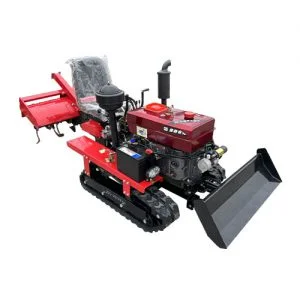
Always refer to the user manual for specific maintenance guidelines and best practices tailored to your model. Following these recommendations will help ensure that your mini tractor remains in optimal condition.
Conclusion
Investing in a mini tractor for farming can dramatically transform your small farm operations. From enhancing efficiency and productivity to providing a cost-effective solution for various agricultural tasks, the benefits are clear. By choosing the right model and implementing proper maintenance practices, you can ensure that your mini tractor serves you well for years to come.
FAQ
Q:What tasks can a mini tractor perform?
A:A mini tractor for farming can perform a wide array of tasks, including plowing, mowing, transporting materials, soil preparation, and planting. Its versatility makes it an ideal choice for various agricultural applications.
Q:Are mini tractors suitable for all types of farms?
A:Yes, mini tractors are highly versatile and can be effectively used on different types of small farms, including vegetable gardens, orchards, and hobby farms. Their adaptability allows them to cater to a wide range of farming needs.
Q:How much does a mini tractor cost?
A:Prices for mini tractors vary widely based on features, capabilities, and brand reputation. Generally, they can range from $8,000 to $25,000, making them accessible for many small farmers looking for cost-effective solutions.
Q:Do I need a special license to operate a mini tractor?
A:Most regions do not require a special license to operate a mini tractor; however, it’s crucial to check local regulations and guidelines to ensure compliance with any specific requirements.
Q:What attachments should I consider for my mini tractor?
A:Common attachments include plows, mowers, tillers, and trailers. Your choice of attachments should depend on the specific tasks you need to perform regularly on your farm.

